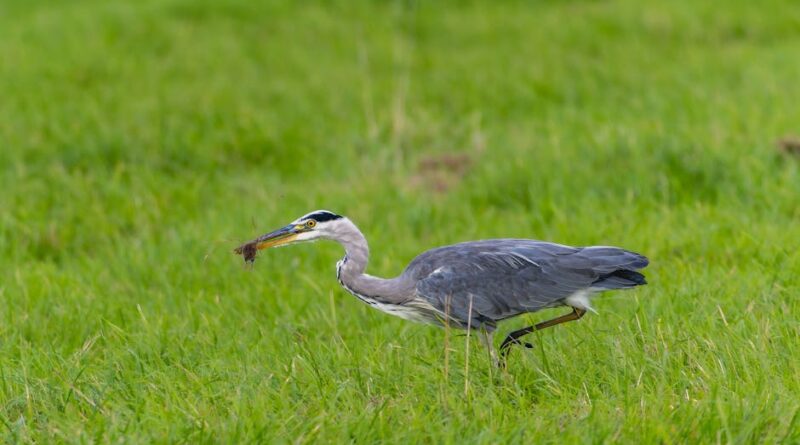Promoting Green and Sustainable Hunting: A Comprehensive Guide
In recent years, the concept of green and sustainable hunting has gained significant traction among conservationists, outdoor enthusiasts, and environmentalists. This approach to hunting emphasizes the importance of ethical practices, conservation efforts, and sustainable use of resources to ensure the long-term health of ecosystems and wildlife populations. But what exactly does promoting green and sustainable hunting entail? How does it differ from traditional hunting practices? And what are the benefits of adopting this approach?
In this comprehensive guide, we will delve into the world of green and sustainable hunting, exploring its various dimensions, discussing its historical significance, current applications, and future implications. We will also address common misconceptions, provide a comparative analysis of different hunting practices, and answer frequently asked questions to offer a well-rounded view of this increasingly important topic.
The Historical Roots of Green and Sustainable Hunting

Green and sustainable hunting is not a new concept; in fact, it has deep roots in the history of human civilization. Traditional societies around the world have long practiced sustainable hunting techniques, respecting the environment and wildlife populations to ensure their survival. For example, indigenous communities in North America, Africa, and Australia have relied on hunting for sustenance for centuries, carefully managing their resources and observing strict hunting regulations to maintain ecological balance.
In more recent history, the conservation movement of the 19th and 20th centuries played a significant role in shaping modern hunting practices. Visionaries like Theodore Roosevelt, who was not only the 26th President of the United States but also a passionate conservationist and hunter, advocated for the ethical and sustainable use of natural resources. Roosevelt’s legacy paved the way for the establishment of national parks, wildlife refuges, and conservation laws that continue to shape hunting practices today.
The Principles of Green and Sustainable Hunting

At its core, green and sustainable hunting is guided by a set of principles that prioritize the well-being of wildlife populations, conservation of habitats, and ethical treatment of animals. These principles include:
1. Conservation and Habitat Protection
One of the key tenets of green and sustainable hunting is the conservation of wildlife habitats and the protection of endangered species. Hunters who adhere to these principles actively contribute to conservation efforts by supporting habitat restoration projects, participating in wildlife management programs, and advocating for the protection of at-risk species.
2. Ethical Harvesting
Green and sustainable hunters strive to minimize waste and ensure that harvested animals are utilized responsibly. This means making use of all parts of the animal, including meat, hide, bones, and organs, and avoiding needless destruction of wildlife resources. Ethical harvesting also involves following humane hunting practices, such as using appropriate weapons and techniques to minimize suffering.
3. Respect for Nature
Green and sustainable hunters have a deep respect for the natural world and its inhabitants. They understand the interconnectedness of all living beings and strive to maintain harmony with nature. This respect is reflected in their behavior in the field, their support for conservation initiatives, and their commitment to preserving biodiversity.
The Benefits of Green and Sustainable Hunting

Green and sustainable hunting offers a wide range of benefits, both for wildlife populations and the environment, as well as for hunters themselves. Some of the key advantages of promoting green and sustainable hunting include:
1. Conservation of Wildlife Populations
By participating in sustainable hunting practices, hunters can help regulate wildlife populations, prevent overpopulation, and reduce the risk of habitat destruction. This, in turn, contributes to the overall health and balance of ecosystems, ensuring the long-term survival of species and the preservation of biodiversity.
2. Sustainable Resource Management
Green and sustainable hunting promotes the responsible use of natural resources, including game animals, forests, and water sources. By adopting sustainable practices, hunters can help maintain the health and productivity of ecosystems, ensuring that future generations will have access to these resources for years to come.
3. Economic Benefits for Local Communities
Sustainable hunting practices can also have positive economic impacts on local communities, particularly in rural areas where hunting is a significant source of income. By promoting eco-tourism, supporting local businesses, and investing in conservation efforts, hunters can help stimulate economic growth while preserving natural landscapes and wildlife habitats.
Common Misconceptions About Green and Sustainable Hunting

Despite its many benefits, green and sustainable hunting is often misunderstood and misrepresented. Some common misconceptions about this practice include:
1. Green and Sustainable Hunting is Inhumane
One of the most prevalent myths about green and sustainable hunting is that it is cruel and inhumane. In reality, ethical hunters prioritize the well-being of animals and strive to minimize suffering through careful planning, skillful execution, and humane harvesting techniques. By adhering to strict ethical guidelines, hunters can ensure that their actions are respectful and responsible.
2. Green and Sustainable Hunting is Unnecessary
Another misconception is that green and sustainable hunting is unnecessary in modern society, given the availability of alternative food sources and recreational activities. However, hunting plays a vital role in wildlife management, conservation efforts, and sustainable resource use. By participating in ethical hunting practices, hunters can contribute to the health of ecosystems and the conservation of wildlife populations.
FAQs About Green and Sustainable Hunting
Q: How can hunters promote green and sustainable practices?
A: Hunters can promote green and sustainable practices by following ethical guidelines, supporting conservation initiatives, participating in wildlife management programs, and advocating for responsible hunting regulations.
Q: What role do hunting organizations play in promoting sustainability?
A: Hunting organizations play a crucial role in promoting sustainability by providing education, training, and resources for hunters, advocating for ethical hunting practices, and supporting conservation efforts in local communities.
Conclusion
To wrap things up, promoting green and sustainable hunting is not just a trend or a passing fadit is a fundamental ethos that guides responsible hunters in their interactions with nature. By prioritizing conservation, ethical harvesting, and respect for the environment, hunters can play a vital role in preserving wildlife populations, protecting habitats, and ensuring the long-term sustainability of natural resources. As we move forward, it is essential for hunters, conservationists, and policymakers to work together to promote green and sustainable hunting practices and secure a brighter future for our planet.




